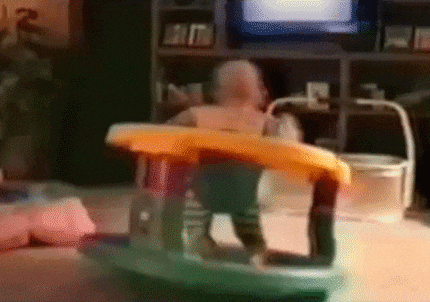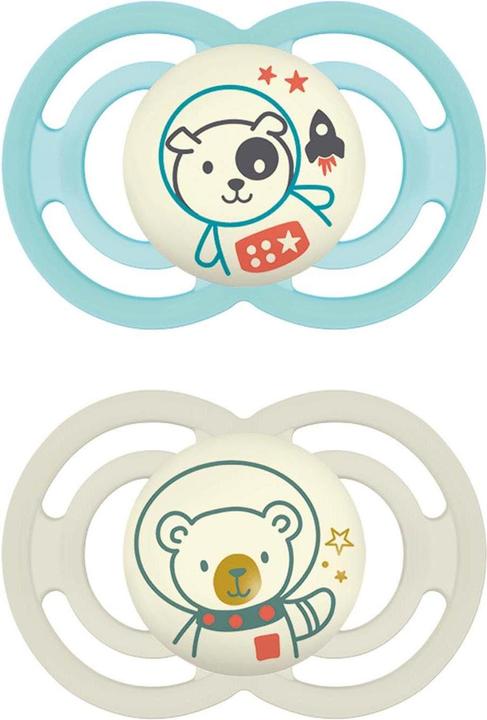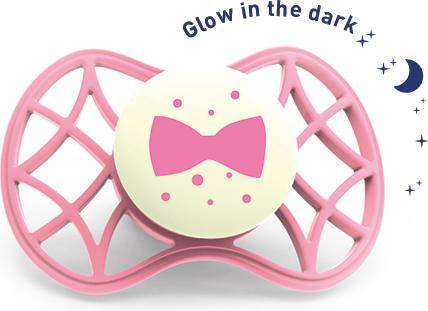

Night-time nappy service: When the sleep aid becomes a sleep problem
Many children only sleep with a dummy in their mouth and wake up as soon as they lose it. The consequence: their parents provide a night-time soother service. Sleep coach Tilja Tanner explains how they manage to quit this service soon.
You know the famous story about the man and his hollow tooth? It's a never-ending story that starts all over again. And it can also happen with the pacifier:
Once upon a time, there was a child who sucked on his dummy until he fell asleep peacefully. Minutes later, he was wide awake again and screaming. The dummy had fallen out of his mouth and could not be found. So a parent came and put the dummy back in his mouth. The child sucked on his dummy until he fell asleep peacefully. Minutes later, he was wide awake again and screaming. The dummy had fallen out of his mouth ...

Hourly nugget search
Parents of nuggi children will be familiar with the seemingly endless game. Children's sleep coach Tilja Tanner regularly encounters the nocturnal nuggiservice in her children's sleep coaching sessions. "In many conversations with parents of dummy children, when asked what the child needs to go back to sleep, they say: 'Sometimes it's enough just to put the lost dummy back in their mouth'," she explains.
The mum of two also knows the problem from her own experience: at peak times, she would search for her older son's dummy in bed every one to one and a half hours so that he could continue to sleep. Spreading a few more dummies around the bed would have been the simplest solution - but it just didn't work. "At some point, he even needed one dummy in his mouth and two in his hands to be able to sleep peacefully."

Source: ZVG
Practise, practise, practise - at night and during the day
What Tilja Tanner didn't realise at the time, but now explains to her tired customers, is that children first have to learn to pick up the dummy independently and bring it to their mouth. They are able to do this from the age of around seven or eight months. "If they don't do this on their own, parents can practise it with them," says the sleep coach.
The best way to do this is during the day in a play situation. For example, by putting the dummy in your child's hand and motivating them to put it in their mouth themselves. "If that doesn't work yet, you can guide his hand and explain what he should do."
The next step: practise finding the dummy together. Lie down on the floor, distribute dummies around you and announce what's happening: "We're now going to look for your dummy together and put it back in your mouth." Reduce the support more and more as you do this and practise the whole thing with your child at night too: "You're awake and have lost your dummy. Come on, let's find it together now."
It can also help to designate a place in bed with your child where the dummy will be from now on. And perhaps even place glowing night nuggis there, which the child can find more easily in the dark.
What the pacifier is good for
How about getting to the root of the problem instead and weaning your child off the dummy straight away? Difficult. Because children have an innate need to suck. Firstly, it serves to absorb food, but it is also a self-effective form of regulation - and falling asleep and staying asleep has a lot to do with regulation. Children calm themselves down with the dummy, it helps them to wind down and gives them security. This also includes sucking on the hand or thumb, says Tilja Tanner. "As they get older, however, they can also regulate themselves in other ways. The dummy is then often simply a habit."
And then it's advisable to wean your child off the dummy during the day and only later for going to sleep in the evening and at night. Until then, the dummy remains a night-time sleep aid for the child. And for parents - as long as they don't have to provide a pacifier service.
Tilja Tanner (37) is a certified sleep coach according to Bianca Niermann® and childcare specialist with years of experience in daycare centres. She lives with her husband and two sons in the canton of Bern.
This article is part of a multi-part series with Tilja Tanner on the topic of child sleep. Do you have any comments or questions that you would like to clarify in the upcoming articles? Let us know in the comments or send me an email.
The following articles have already been published: [[marketingpage:30417]] [[marketingpage:31069]]
Titelfoto: Shutterstock/Larisa Rudenko
Mom of Anna and Elsa, aperitif expert, group fitness fanatic, aspiring dancer and gossip lover. Often a multitasker and a person who wants it all, sometimes a chocolate chef and queen of the couch.
Practical solutions for everyday problems with technology, household hacks and much more.
Show all



